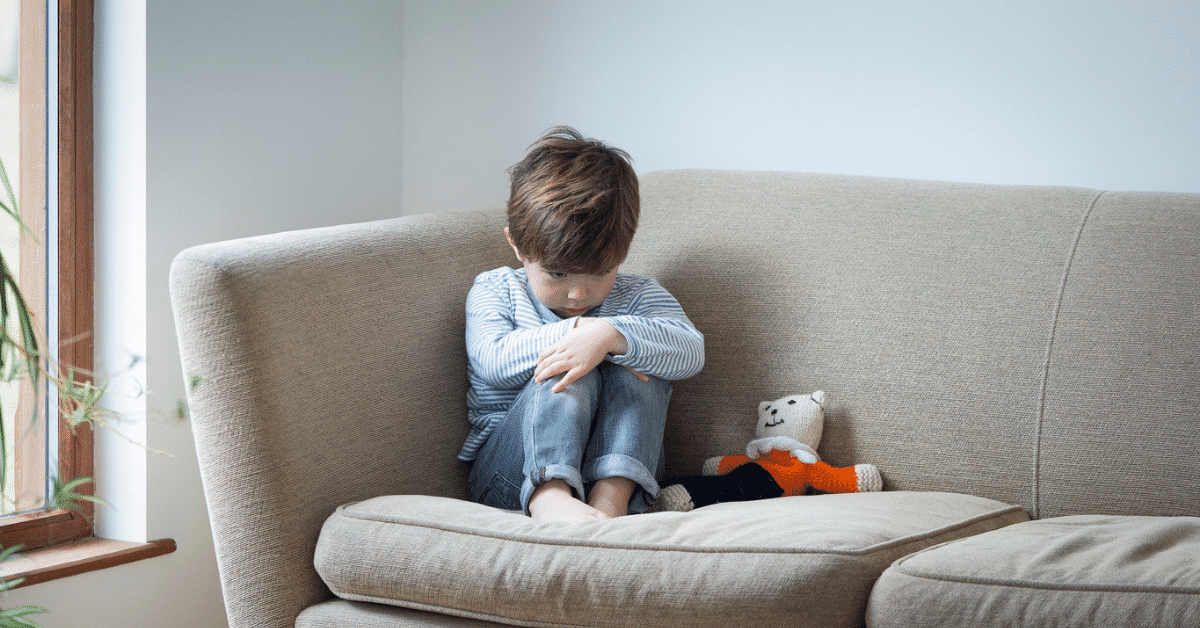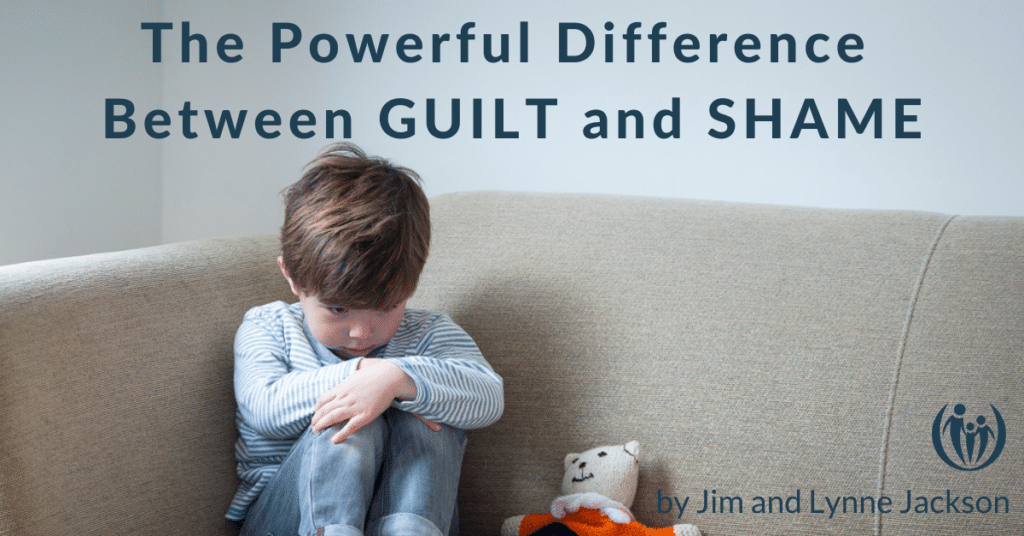
The Powerful Difference Between Guilt and Shame
And how to help your kids to understand that difference

What is the difference between guilt and shame?
You know you shouldn’t have lost your temper in a recent conflict with a loved one. But you did. To resolve the aftermath, you prayed for forgiveness and apologized thoroughly (maybe even to excess) with the one you wronged. Then why do you feel like your soul is weighed down under a heap of rocks as you replay the interaction over and over?
What you might be feeling is shame, which is vastly different from guilt. Read about the differences below and how you might talk about this with your kids.
Guilt is about what I did
Guilt is the emotion God gives us that lets us know we’ve sinned. The feeling is caused by the status of guilt (we feel guilty because we are guilty), but God-given guilt is brave and honest about admitting those selfish actions.
“Fools make fun of guilt, but the godly acknowledge it and seek reconciliation.” Proverbs 14:9 NLT
Guilt likely will not go away until you have done your work to confess, repent, and restore. Once this work is done, then the guilt has done its job well and ought to be gone! No blaming or self-critical rumblings echoing around your soul. The Bible describes this as “godly grief that produces a repentance that leads to salvation without regret…” (2 Corinthians 7:10). Godly grief is much different than shame.
Shame is about who I am
Shame builds an identity of, “There’s something wrong with me. I’m a bad person.” If a heavy feeling remains after a parent or child has acknowledged their sin and restored the relationship, that emotion is no longer guilt, but shame. Satan’s name means “Accuser,” and he loves to make us feel shame because it robs us of God’s grace and the true identity Christ gives us as beloved children.
Ordinary messes of family life can become fertile soil for growing a deep understanding of rich spiritual truth. These ideas about guilt and shame apply to both parents and kids, since we both sin against each other.
One mom’s story about the difference between guilt and shame
Hannah, a coaching client* taught her daughter this profound truth about guilt and shame:
One day after school, I asked my 10-year-old daughter, Alicia, if she had walked the dog that morning.
“Yup!” she exclaimed.
“How far?”
“Around the block.” She looked a little more uncomfortable.
“Did he poop?”
“Um – yup.” Now she looked a bit downtrodden.
“Ok, thanks for letting me know,” I said, as Alicia slunked off to her room to avoid any more questions.
A few minutes later I entered her room, quietly sat next to her and said, “You know that icky feeling you have inside of you right now? That is called guilt, and it is a beautiful gift from God to protect our relationships. It helps us know when we’ve made a mistake, and when we need to make things right with the ones we’ve hurt. Is there anything you want to make right?”
“YES! I’m sorry I didn’t walk the dog! And I’m sorry I lied to you. How did you know?!?”
After we talked briefly about how I knew, I went on to share the difference between guilt and shame, explaining, “Guilt says ‘I MADE a mistake. But I can make it right!’
Shame says, ‘I AM a mistake.’”
I told her, “You lied to me about walking the dog. But YOU are not a mistake. You can make this right.”
Related Posts
Embracing the teachable moment
Alicia went away that day knowing that we all make mistakes, but if we listen and respond to the unsettled feeling inside, we can make things right with those we’ve wronged, and receive the forgiveness and closeness God intends for us.
Hannah capitalized on a teachable moment with Alicia in a grace-filled way. But perhaps the most powerful way to teach our kids about guilt/shame is to model God’s process. The next time you blow it with your kids, confess, repent, and restore your relationship. Then celebrate forgiveness. You can even quote 1 John 1:9, “If we confess our sins, He is faithful and just to forgive us our sins and to cleanse us from all unrighteousness.”
Or, if you and your kids relate to word pictures – “I have swept away your offenses like a cloud, your sins like the morning mist.” Isaiah 44:22 Picture the gloom of sin like a dreary fog, which completely burns off and disappears in the brilliance of Christ’s light!
Model leaning into God’s grace
When we believe we are a mistake and our mistakes define us, we hide our true selves from God and we may even blame others. When we respond to God’s voice about making a mistake, it keeps our hearts open and tender toward God and others, and protects our relationships.
Let your children see you leaning into the good purpose of godly guilt to guide reconciliation, and then joyfully receiving the depth of God’s forgiveness that washes that guilt away. This will probably be more powerful than the best Sunday school lesson on God’s grace!!
“Those who look to Him are radiant, and their faces shall never be ashamed.” Psalm 34:5
Sign up below to receive a weekly dose of encouragement straight to your inbox:







